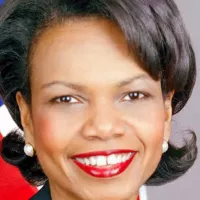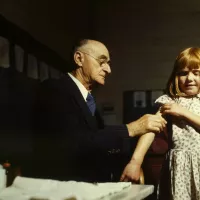The United Nations Relief and Works Agency for Palestine Refugees in the Near East (UNRWA) is a UN agency dedicated to providing relief and human development assistance to Palestinian refugees. Its mandate extends to those who fled or were expelled during the 1948 Palestine war (Nakba) and subsequent conflicts, including descendants and legally adopted children. As of 2019, over 5.6 million Palestinians were registered with UNRWA as refugees, highlighting the scale of its operations and the ongoing needs of the population it serves.
June 1946: Definition of Palestine refugees
Palestine refugees are defined as persons whose regular place of residence was Palestine during the period 1 June 1946 to 15 May 1948, and who lost both home and means of livelihood as a result of the 1948 conflict.
May 1948: Definition of Palestine refugees
Palestine refugees are defined as persons whose regular place of residence was Palestine during the period 1 June 1946 to 15 May 1948, and who lost both home and means of livelihood as a result of the 1948 conflict.
November 1948: UN General Assembly passes Resolution 212 (III)
In November 1948, following the 1948 Arab–Israeli War, the United Nations General Assembly passed Resolution 212 (III) establishing the UN Relief for Palestine Refugees (UNRPR) to provide emergency relief to Palestine refugees.
1948: Start of the Palestinian refugee crisis
Following the 1948 war, UNRWA policy considers Palestinian Arabs who fled from Israel, and their descendants, as refugees until a just and durable solution is found.
1948: Nakba and the 1948 Palestine war
In 1948, during the Nakba and the 1948 Palestine war, Palestinians fled or were expelled, leading to the creation of UNRWA to support refugees.
1948: 1948 conflict
In 1948, the UN General Assembly established UNRWA to provide relief to all refugees resulting from the conflict.
December 1949: UN General Assembly adopts Resolution 302(IV) establishing UNRWA
On December 8, 1949, the General Assembly adopted Resolution 302(IV), which established the United Nations Relief and Works Agency for Palestine Refugees in the Near East (UNRWA).
1949: Establishment of UNRWA
In 1949, UNRWA was established by the UN General Assembly to provide relief to refugees from the 1948 conflict.
December 1950: Expansion of UNRWA's Mandate
In December 1950, UNRWA's mandate was expanded through Resolution 393(V), instructing the agency to establish a reintegration fund for the permanent re-establishment of refugees.
1950: Establishment of UNHCR
In 1950, the United Nations High Commissioner for Refugees (UNHCR) was established as the main agency to aid all other refugees worldwide, while UNRWA focuses on Palestinian refugees.
1950: UNRWA Main Healthcare Provider
Since 1950, UNRWA has acted as the main healthcare provider for Palestinian refugees, offering primary care clinics, access to hospitals, food aid, and environmental health services in refugee camps.
1950: UNRWA main provider of education to Palestinian refugees
Since 1950, UNRWA has been the main provider of basic education to Palestinian refugee children, offering free basic education to all registered refugee children.
1950: UNRWA begins operations
When UNRWA began operations in 1950, it was responding to the needs of about 700,000 Palestinian refugees.
January 1952: Allocation of funding on reintegration
On 26 January 1952, a resolution allocated four times as much funding on reintegration than on relief, requesting UNRWA to otherwise continue providing programs for health care, education, and general welfare.
1952: Israeli government takes over responsibility for Jewish and Arab Palestine refugees
In 1952, the Israeli government took over the responsibility for Jewish and Arab Palestine refugees inside the State of Israel.
1967: Intervention Due to 1967 War
In 1967, UNRWA took action to mitigate the effects of the 1967 War on Palestine refugees.
1967: Six-Day War
In 1967, the Six-Day War created a new wave of Palestinian refugees who could not be included in the original UNRWA definition.
1991: Establishment of UNRWA's Microfinance Department
In 1991, the Microfinance Department (MD) was established within UNRWA to provide microfinance services to Palestinian refugees and other marginalized groups.
1991: UN General Assembly adopts annual resolution
Since 1991, the UN General Assembly has adopted an annual resolution allowing the 1967 refugees within the UNRWA mandate.
1994: Start of changes to Palestinian textbooks
Nathan Brown's review of Palestinian textbooks focused on changes that started in 1994.
1998: Research into Palestinian textbooks by the Centre for Monitoring the Impact of Peace
In 1998, the Centre for Monitoring the Impact of Peace conducted research into Palestinian textbooks.
2000: PA started issuing its own books
In 2000, the Palestinian Authority (PA) started issuing its own textbooks for use in schools.
2000: UNRWA Starts Human Rights Education in Schools
Since 2000, UNRWA has been delivering human rights education in its schools to promote non-violence, healthy communication skills, peaceful conflict resolution, human rights, tolerance, and good citizenship.
2000: UNRWA Supplements Curriculum with Human Rights Concepts
Since 2000, UNRWA has taken many steps to supplement the PA curriculum with concepts of human rights, nonviolent conflict resolution, and tolerance.
2002: US Congress Requests Review of Palestinian Curriculum
In 2002, the United States Congress requested the United States Department of State to commission a reputable NGO to conduct a review of the new Palestinian curriculum.
March 2003: IPCRI Delivers Report on Palestinian Curriculum to the US State Department
In March 2003, the Israel/Palestine Center for Research and Information (IPCRI) delivered its report on the new Palestinian curriculum to the US State Department for submission to Congress, stating that the curriculum's overall orientation is peaceful and does not openly incite against Israel and the Jews, hatred, or violence.
June 2004: IPCRI Follow-Up Report Notes Tolerance in Textbooks
In June 2004, IPCRI's follow-up report noted that, except for calls to resist occupation and oppression, no signs were detected of outright promotion of hatred towards Israel, Judaism, or Zionism and that tolerance, as a concept, runs across the new textbooks.
October 2004: Peter Hansen's Comments Cause Controversy
In October 2004, UNRWA Commissioner-General Peter Hansen caused controversy in Canada when he made certain comments during an interview with CBC TV.
2004: Marx and Nachmias pointed out criticisms of UNRWA
In 2004, Emanuel Marx and Nitza Nachmias pointed out that many criticisms of UNRWA corresponded to its age, including symptoms of inflexibility and resistance to change.
2004: GAO Investigates UNRWA Funding
In 2004, the U.S. Congress requested the General Accounting Office (GAO) to investigate claims that government funding given to UNRWA had been used to support individuals involved in militant activities. The GAO discovered several irregularities in processing and employment history during its investigation.
March 2005: Hansen Retired Against His Will
On 31 March 2005, Hansen was retired from United Nations service against his will after the United States blocked his reappointment.
2005: Nathan Brown reviewed Palestinian textbooks
In 2005 Nathan Brown, Professor of Political Science at George Washington University, reviewed textbooks used by Palestinians, focusing especially on changes starting in 1994.
2005: Australia, Canada, Denmark, Germany, Italy, Netherlands, Norway, Saudi Arabia, Spain, Sweden, Switzerland join the AdCom
In 2005, Australia, Canada, Denmark, Germany, Italy, Netherlands, Norway, Saudi Arabia, Spain, Sweden, Switzerland joined the UNRWA Advisory Commission (AdCom).
2005: Palestine, the European Union, and the League of Arab States have observer status
Since 2005, Palestine, the European Union, and the League of Arab States have had observer status at the UNRWA Advisory Commission.
2006: PA Ministry of Education Revises Textbooks
In 2006, the PA Ministry of Education and Higher Education revised textbooks, and international academics concluded that books did not incite violence against Jews but showed imbalance, bias, and inaccuracy.
2007: Israel expressed its continued support for UNRWA
In 2007, Israel expressed its continued support for UNRWA, noting that despite "concerns regarding the politicization" of the agency, the country supports its humanitarian mission.
2007: UNRWA initiated a reform program
In 2007, UNRWA initiated a reform program to improve efficiency within the agency.
2007: Launch of the Infrastructure and Camp Improvement Programme (ICIP)
In 2007, UNRWA launched the Infrastructure and Camp Improvement Programme (ICIP) to improve spatial and environmental conditions in refugee camps.
2007: Destruction of Nahr al-Bared refugee camp
In 2007, much of the Nahr al-Bared refugee camp in northern Lebanon was destroyed due to fighting between Fatah al-Islam militants and the Lebanese Armed Forces.
2008: Growth of UNRWA's archive collection
As of 2008, UNRWA's collection of photographs and films documenting the lives of refugees had grown to around 10,000 photographs, 400,000 negatives, 15,000 colour slides, 75 films, and 400 videotapes.
2008: Finland and Ireland join the AdCom
In 2008, Finland and Ireland joined the UNRWA Advisory Commission (AdCom).
March 2009: UNRWA Denies Hamas Won Teachers Union Election
In March 2009, UNRWA strongly denied reports that Hamas won a teachers union election for UN schools in Gaza.
2009: James G. Lindsay and WINEP Suggest Improvements for UNRWA
Based on his 2009 analyses for WINEP, former UNRWA general-counsel James G. Lindsay and a fellow researcher for the Washington Institute for Near East Policy made suggestions for UNRWA improvement.
2009: Hamas Causes UNRWA to Suspend Holocaust Studies
In 2009, Hamas caused UNRWA to suspend a decision to introduce Holocaust studies in its schools.
2009: Report criticizing UNRWA practices
In 2009, James G. Lindsay published a report criticizing UNRWA practices, concluding that its failure to resettle refugees represents a political decision.
2009: John Ging Responds to Criticism of UNRWA Schools
In 2009, John Ging, head of UNRWA Gaza, responded to a critical report by James G. Lindsay, stating, "As for our schools, we use textbooks of the Palestinian Authority. Are they perfect? No, they're not. I can't defend the indefensible."
2009: UNESCO Recognition of UNRWA archive
In 2009, UNESCO added UNRWA's collection of photographs and films to its Memory of the World International Register, recognizing it as documentary heritage of global importance.
2009: Reconstruction work began at Nahr el-Bared camp
In 2009, UNRWA began the reconstruction work at Nahr el-Bared Palestine refugee camp in Lebanon.
2009: Hamas Criticizes UNRWA for Teaching Western Values
In 2009, UNRWA came under criticism from Hamas for teaching Palestinian students Western values and for organizing trips to Holocaust remembrance sites.
2009: Dire financial crisis
In 2009, UNRWA officials spoke of a "dire financial crisis", including a funding shortfall of $200 million, in the wake of the Israeli offensive in Gaza.
2009: US State Department Raises Concerns About PA Textbooks
In 2009, the US Department of State wrote in its Human Rights report that after a 2006 revision of textbooks by the PA Ministry of Education and Higher Education, international academics concluded that books did not incite violence against Jews but showed imbalance, bias, and inaccuracy.
January 2010: Canada redirects aid from UNRWA to the Palestinian Authority
In January 2010, the Government of Canada announced that it was redirecting aid previously earmarked to UNRWA to projects under the Palestinian Authority.
October 2010: Canada's failed effort to obtain a seat on the UN Security Council
In October 2010, some suggested that the 2010 Canadian decision to redirect aid from UNRWA also cost Canada international support in its failed effort to obtain a seat on the UN Security Council.
2010: Kuwait joins the AdCom
In 2010, Kuwait joined the UNRWA Advisory Commission (AdCom).
April 2011: Op-ed critiquing UNRWA's role in Palestinian society
In April 2011, The Wall Street Journal Europe published an op-ed by Asaf Romirowsky and Alexander H. Joffe criticizing UNRWA, saying that "it is hard to claim that the UNRWA has created any Palestinian institutions that foster genuinely civil society".
September 2011: UNRWA Makes Summer Camps Single-Sex
In September 2011 it was reported that, under pressure from Hamas, UNRWA has made all its summer camps single-sex.
2011: UNRWA Agreed to be Assessed by MOPAN
In 2011, UNRWA agreed to be assessed by the Multilateral Organisation Performance Assessment Network (MOPAN), a network of donor countries to determine the organizational effectiveness of multilateral organizations.
2011: Introduction of Family Health Team approach
In 2011, UNRWA introduced the Family Health Team (FHT) approach, based on WHO's primary health care values, in its primary health facilities.
April 2012: Karen Koning AbuZayd Argues UNRWA Needs Support
In April 2012, Karen Koning AbuZayd, former Commissioner-General of the UNRWA, argued in the Middle East Monitor that "UNRWA needs support not brickbats".
May 2012: UNRWA Endorses Human Rights Policy
In May 2012, UNRWA endorsed its new Human Rights, Conflict Resolution and Tolerance (HRCRT) Policy to further strengthen human rights education in UNRWA schools.
2012: Luxembourg joins the AdCom
In 2012, Luxembourg joined the UNRWA Advisory Commission (AdCom).
2012: UNRWA began digitising its archive
In 2012, UNRWA began digitizing its archive and making images available online to the public.
2012: Reports of Hamas Sympathizers Winning Staff Union Seats
In 2012, reports indicated that a staff union election resulted in a significant number of seats going to Palestinians who were either Islamist or sympathetic towards Hamas.
2012: Lowest funding point since 2012
In July 2020 Commissioner-General Lazzarini warned that funding was at its lowest point since 2012.
2012: UNRWA Cancels Summer Camps Due to Lack of Funding
UNRWA did not operate its summer camps for summer 2012 due to a lack of available funding.
2013: Hamas Passes Gender Segregation Law
In 2013, Hamas passed a law requiring gender segregation in schools for all pupils nine years of age and older in Gaza. The law does not apply to UNRWA schools.
2013: Israeli Media Reports on UNRWA-Funded Summer Camps Promoting Violence
In 2013, Israeli media outlets reported that UNRWA-funded summer camps were teaching children to engage in violence with Israelis. The video aired speakers telling campers "With God's help and our own strength we will wage war. And with education and Jihad we will return to our homes!" UNRWA denied the claims, stating the video was "grossly misleading" and showed camps not operated by them. They stated the summer camp shown in the West Bank was not affiliated with or organized by UNRWA, and that footage from the camp in Gaza "revealed that absolutely nothing anti-Semitic or inflammatory was done or said".
2013: UNRWA Cancels Marathon in Gaza
In 2013, UNRWA canceled its planned marathon in Gaza after Hamas rulers prohibited women from participating in the race.
2013: Council for Religious Institutions Releases Textbook Study
In 2013, the Council for Religious Institutions in the Holy Land published a report, "Victims of Our Own Narratives? Portrayal of the 'Other' in Israeli and Palestinian School Books", which compared Israeli textbooks to PA textbooks. Israeli schoolbooks were deemed superior to Palestinian ones with regard to preparing children for peace, although various depictions of the "other" as enemy occurred in 75% of Israeli, and in 81% of Palestinian textbooks.
February 2014: Hamas Bashes UNRWA's Human Rights Curriculum
In February 2014, Elhanen Miller reported that Hamas was "bashing" UNRWA's human rights curriculum, saying it included too many examples and values foreign to Palestinian culture.
March 2014: Initiative to Reform UNRWA Announced by Center for Near East Policy Research
In March 2014, the Center for Near East Policy Research announced an initiative to reform UNRWA.
July 2014: David Horovitz Discusses Israel's Complaints Against UNRWA
On July 31, 2014, David Horovitz argued in the Times of Israel that Israel had legitimate complaints against UNRWA. These complaints included the agency's definition of "refugee" including descendants, its monitoring by Hamas, and the harboring of Hamas operatives and weaponry in its facilities.
2014: Brazil and the United Arab Emirates join the AdCom
In 2014, Brazil and the United Arab Emirates joined the UNRWA Advisory Commission (AdCom).
2014: Key Figures for 2014
In 2014, UNRWA released information on key figures related to its operations, though the specific details are not provided in this context.
2014: Intervention Due to 2014 Gaza War
In 2014, UNRWA took action to mitigate the effects of the 2014 Gaza War on Palestine refugees.
2014: UNRWA Cancels Summer Camps Again
UNRWA did not operate its summer camps for summer 2014 due to a lack of available funding.
2015: Start of alleged management issues within UNRWA
According to an internal ethics report, since 2015, UNRWA's senior management allegedly consolidated power at the expense of efficiency, leading to misconduct and nepotism.
August 2018: U.S. ceases contributions to UNRWA
In August 2018, the U.S. ceased its contributions to UNRWA, resulting in the loss of $300 million out of the $1.2 billion budget and contributing to an overall deficit of $446 million.
2018: Annual report by UNRWA's Department of Internal Oversight Services and Ethics Division
In 2018, UNRWA's Department of Internal Oversight Services and Ethics Division presented an annual report confirming positive assessments of the agency's management and impact.
2018: Trump Administration Stops Funding UNRWA
In 2018, the Trump administration ceased funding UNRWA, citing a "failure to mobilize adequate and appropriate burden sharing" and deeming its business model and fiscal practices "simply unsustainable".
December 2019: Funding restored and increased
In December 2019, the Netherlands restored its funding, increasing its donation by €6 million for 2019, to €19 million. The EU increased its contribution from €82 million ($92.2 million) by €21 million ($23.3 million), and Germany agreed to fund four new UNRWA projects, totaling €59 million ($65.6 million). Qatar increased its donation for Palestinians in Syria by $20.7 million, bringing the 2019 total to $40 million.
2019: UNRWA Budget Allocation
As of 2019, UNRWA's budget was primarily allocated to education (58%), followed by healthcare (15%), and general support services (13%).
2019: 5.6 million Palestinians registered with UNRWA as refugees
As of 2019, more than 5.6 million Palestinians are registered with UNRWA as refugees.
2019: Ethics report alleged misconduct in UNRWA
In 2019, an internal ethics report leaked to Al Jazeera alleged that UNRWA's senior management had consolidated power at the expense of efficiency since 2015, leading to misconduct and nepotism.
2019: EU countries contribute close to 60 percent of pledge
In 2019, close to 60 percent of UNRWA's pledge of $1 billion came from EU countries, with Germany being the largest individual donor.
2019: Organisation for Islamic Cooperation joins as an observer
In 2019, the Organisation for Islamic Cooperation joined as an observer at the UNRWA Advisory Commission.
2019: Ministerial Strategic Dialogue and high-level ministerial meeting
In 2019, the funding situation for UNRWA was discussed in April at a "Ministerial Strategic Dialogue" and at a high-level ministerial meeting at the annual meeting of the General Assembly.
2019: MOPAN commended UNRWA for program efficiency
In its most recent assessment in 2019, MOPAN commended UNRWA for continuing to increase the efficiency of its programmes.
March 2020: Philippe Lazzarini appointed Commissioner-General
On March 8, 2020, Philippe Lazzarini of Switzerland was appointed as the Commissioner-General of UNRWA.
July 2020: Commissioner-General Lazzarini warns that UNRWA's budget was "not sustainable"
In July 2020, Commissioner-General Lazzarini warned that UNRWA's budget was "not sustainable", with shortfalls in four out of the five previous years, and funding at its lowest point since 2012.
April 2021: Reconstruction progress in Nahr al-Bared refugee camp
As of April 2021, nearly two-thirds (72 percent) of the Nahr al-Bared refugee camp had been reconstructed, enabling 3,550 families to return.
April 2021: Biden Administration Restarts Funding for UNRWA
In April 2021, the Biden administration resumed funding for UNRWA.
September 2021: European Parliament Approves Withholding Aid to UNRWA Over Curriculum Concerns
In September 2021, the European Parliament's Budgetary Control Committee approved withholding 20 million Euros in aid to UNRWA, contingent on immediate changes to UNRWA's education curriculum due to concerns about hate speech and violence.
2021: Governments Investigate UNRWA Textbook Content
In 2021, the Australian and Canadian governments started investigating UNRWA, and the British government found that UNRWA had produced and disseminated textbooks inciting violence. UNRWA blocked public access to its website contents in response.
October 2023: Israel Accuses UNRWA Workers of Participating in Attacks
In October 2023, Israel provided intelligence alleging that 18 UNRWA workers participated in the 7 October 2023 attacks.
2023: Key Figures Cumulative as of 2023
As of 2023, UNRWA provided an update with key cumulative figures related to its overall operations.
2023: Refugee camp Statistics
As of 2023, there were 58 official refugee camps for Palestinians with 6 million refugees registered with UNRWA, including 1.37 million in Gaza.
2023: 5.9 million people registered as eligible for UNRWA services
By 2023, some 5.9 million people were registered as eligible for UNRWA services.
January 2024: EU suspended funding for UNRWA
In January 2024, the EU suspended funding for UNRWA due to concerns raised against the agency.
January 2024: US State Department rejected calls to defund UNRWA
On 17 January 2024, the US State Department spokesperson Matthew Miller rejected calls to defund UNRWA.
March 2024: EU reinstated UNRWA funding
On 1 March 2024, the EU reinstated funding for UNRWA after it had been suspended earlier in January.
March 2024: EU Reinstates Funding for UNRWA
On March 1, 2024, the EU reinstated funding for UNRWA.
May 2024: Donors resume funding UNRWA
As of May 2024, several major donors resumed funding UNRWA as the investigation into alleged employee involvement in the October 7 attacks remains ongoing.
September 2024: UNRWA Confirms Hamas Commander Was on Payroll
On 30 September 2024, UNRWA confirmed that Fatah Sharif, a top Hamas commander killed in an Israeli airstrike, had formerly been on its payroll as a school principal. UNRWA said it had suspended Sharif and started an investigation in March when it learned of the allegation that Sharif was a member of the political wing of Hamas.
October 2024: Israel designates UNRWA as a terrorist group
In October 2024, Israel's parliament passed a bill designating UNRWA as a terrorist group and prohibiting it from operating within the country.
October 2024: Knesset Passes Legislation to Cease UNRWA Activity
On 28 October 2024, the Knesset passed legislation ordering UNRWA to cease "any activity" in territories claimed by Israel within 90 days.
December 2024: UN General Assembly Requests ICJ Advisory Opinion
In December 2024, as a result of the ban on UNRWA, the UN General Assembly voted to request an advisory opinion from the ICJ regarding "Obligations of Israel in relation to the Presence and Activities of the United Nations, Other International Organizations and Third States in and in relation to the Occupied Palestinian Territory".
2024: Review Names Problematic Textbooks as Neutrality Issue
A review performed in 2024 names using "host-country textbooks with problematic content" as one of the issues with UNRWA's neutrality, stating international assessments of PA textbooks identified bias and antagonistic content.
2024: Biden Administration Halts Funding Amidst Gaza War
In 2024, during the Gaza war, the Biden administration suspended funding for UNRWA following Israeli allegations of staff involvement in the October 7 attacks.
January 2025: Horovitz Article "Gaza after UNRWA"
In January 2025, David Horovitz published an article titled "Gaza after UNRWA" where he catalogued ties between UNRWA and Hamas and accused the agency of perpetuating intolerance and dooming Gaza.
January 2025: Israel's UNRWA ban goes into effect
In January 2025, Israel's ban on UNRWA went into effect.
February 2025: Former Hostage Alleges Captivity in UNRWA Facility
In February 2025, former hostage Emily Damari alleged she was held in a UNRWA facility for some of her 15-month captivity by Hamas, and UNRWA called for an independent investigation into the misuse of its facilities.
April 2025: DOJ reverses position on UNRWA immunity
In April 2025, the Trump administration Department of Justice reversed a Biden administration position that UNRWA held immunity from lawsuits in United States courts.
July 2025: Lawsuit Filed Against UNRWA
In July 2025, over 200 plaintiffs sued UNRWA in a Washington, D.C., district court, accusing the organization of violating US anti-terrorism laws by supporting Hamas and Hezbollah. They also accused agency staff of direct involvement in terrorist attacks.
September 2025: AP News Reports on Sexual Exploitation in Gaza
In September 2025, AP News reported that women in Gaza during the Gaza War were being exploited by local men, including those affiliated with UNRWA, who promised them aid or employment in exchange for sexual favours.
June 2026: UNRWA's mandate extended until 30 June 2026
UNRWA's mandate has been consistently extended since its founding, most recently until 30 June 2026.
Mentioned in this timeline
Qatar is a country located on the Qatar Peninsula in...
Saudi Arabia officially the Kingdom of Saudi Arabia KSA is...

Condoleezza Rice is a prominent American diplomat and political scientist...
Germany officially the Federal Republic of Germany is a nation...
Japan is an East Asian island country located in the...
Syria officially the Syrian Arab Republic is a West Asian...
Trending

3 minutes ago CDC Panel to Discuss COVID-19 Vaccine Injuries Following RFK Jr.'s Meeting

3 minutes ago Casey Means' Surgeon General Nomination Faces Scrutiny Over Mainstream Medicine Criticism and Birth Control Views.
1 hour ago Punch, the lonely baby monkey, goes viral and wins hearts worldwide.

2 hours ago Jon Hamm Discovers Viral Dancing Meme; Reacts to Meme-Worthy Status at 54.

2 hours ago Georgia: Missing child found safe after Amber Alert issued in Barrow County.

3 hours ago Selena Gomez Defends Benny Blanco Amid Dirty Feet Frenzy and Divorce Comments.
Popular

Jesse Jackson is an American civil rights activist politician and...

Barack Obama the th U S President - was the...

Susan Rice is an American diplomat and public official prominent...

XXXTentacion born Jahseh Dwayne Ricardo Onfroy was a controversial yet...

Michael Joseph Jackson the King of Pop was a highly...

Kashyap Pramod Patel is an American lawyer who became the...